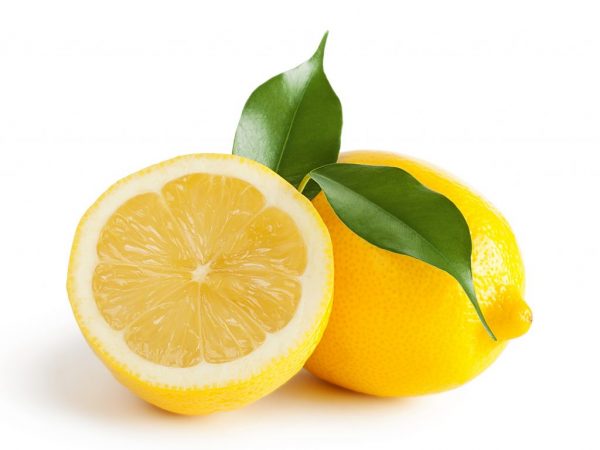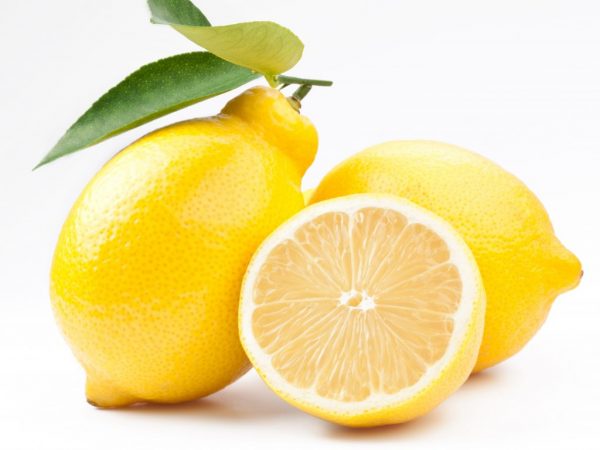Lemon in the diet of a nursing mother and baby
Breastfeeding lemon is useful not only for the nursing mother, but for the baby. However, not everyone has the opportunity to use citrus fruits, because lemon is the strongest allergen.

Lemon in the diet of a nursing mother and baby
The benefits of lemon
Biologically active substances in the composition of citrus have a positive effect on the body:
- Due to the content of vitamin C in large quantities, it helps the body of the mother and child to fight colds and is the prevention of viral infections.
- Stimulates lactation and increases milk production.
- It has antiseptic properties.
- Increases the elasticity of capillaries, which improves the efficiency of the cardiovascular system, prevents blood clots and is a good prevention of varicose veins.
- Reduces cholesterol.
- Cleans the body of toxins and toxins.
- Improves the condition of the skin and gives the face a vibrant shine.
Use during pregnancy
With diseases of the gastrointestinal tract or previous pregnancy allergies, lemon is allowed to be consumed only after consulting a doctor. But if a woman is absolutely healthy, there is no reason for refusing to consume lemon fruits.
In the first trimester of pregnancy, eating the fruit will help the expectant mother to cope with toxicosis. Dissolve lemon juice in water and consume in the morning. Also, immediately after waking up, without getting out of bed yet, put a slice of lemon in your mouth for a minute.
For colds in early pregnancy, when many medications cannot be taken due to a negative effect on the formation and development of the fetus, the use of citrus fruits will help out. Adding the fruit to herbal tea will speed up recovery and strengthen the immune system without harm to the child.
In the later stages of pregnancy, when the enlarged uterus compresses the internal organs, kidney function worsens, heartburn and constipation appear, lemon tea will help:
- stabilize the acidity of the stomach;
- improve intestinal motility;
- fill the breast with milk;
- cope with swelling.
Use with hepatitis B

Lemon can cause allergies
A baby's first acquaintance with citrus fruits occurs during breastfeeding. The use of lemon while breastfeeding should be started no earlier than a month after childbirth. It is necessary for the baby's body to get stronger and slightly adapt to the new environment. A breastfeeding woman should not introduce several new foods into the diet on the same day, so as not to cause allergies in the baby.
Breastfeeding lemon should be introduced gradually, with a lemon tea drink. After that, throughout the day, you need to observe the baby's reaction.
A lemon drink while breastfeeding invigorates a nursing mother, but it is also able to provoke an active baby's behavior throughout the day, so with HB the best time to drink is morning.If the weak tea did not cause negative reactions in the baby, it is worth trying another way of using citrus.
Before adding lemon to tea, you should wait until it cools down a little, because vitamin C, which the body of mother and child needs, is destroyed under the influence of boiling water.
If an allergy occurs in a child, it is forbidden to re-use lemon.
Citrus in the baby's diet
Lemon should not be given to a newborn baby. This fruit is contraindicated in children under 6 months of age due to the presence of fruit acid in it. From how many months to give a fetus to a child - only a doctor can accurately determine.
The sour taste of the fruit will be unpleasant for your baby. A great danger lies in the difficulties with the digestion of citric acid by an immature small organism. A common reaction to citrus fruits is a rash.
The optimal period for the introduction of lemon into the child's diet is 8-10 months. This is the age when babies are able to taste food. Some parents try to give water with lemon juice already from 6 months.
Start your acquaintance with a small bite and follow the reaction for 2 days. Also refrain from introducing new products during this period. Sometimes the first intake is fraught with the appearance of diaper rash or a rash near the mouth.
Children who have a predisposition to allergic reactions should not be given lemon until the age of one.
A 2-year-old child can safely be given lemon wedges with sugar. In this case, you need to monitor whether redness has appeared on the face. Lemon consumption by children should be moderate, as excess citric acid can harm the child's digestive system.
Contraindications
Given the aggressive effect of citric acid and a pungent taste, it is undesirable to use this fruit in a number of conditions.
Contraindications for use include the following diseases:
- high blood pressure;
- stomach ulcer;
- acute pancreatitis;
- cholecystitis;
- kidney disease;
- hepatitis;
- caries and thinning of tooth enamel.
It should not be used also in case of pronounced inflammatory processes in the nasopharynx, larynx and throat. The acid in the composition can provoke irritation in the affected areas and increase pain.
Conclusion
At what age to give lemon to a child, the pediatrician will be able to determine, so if in doubt, consult a specialist. Proper use in moderation will bring tremendous benefits to the small body while breastfeeding and to the lactating woman.


